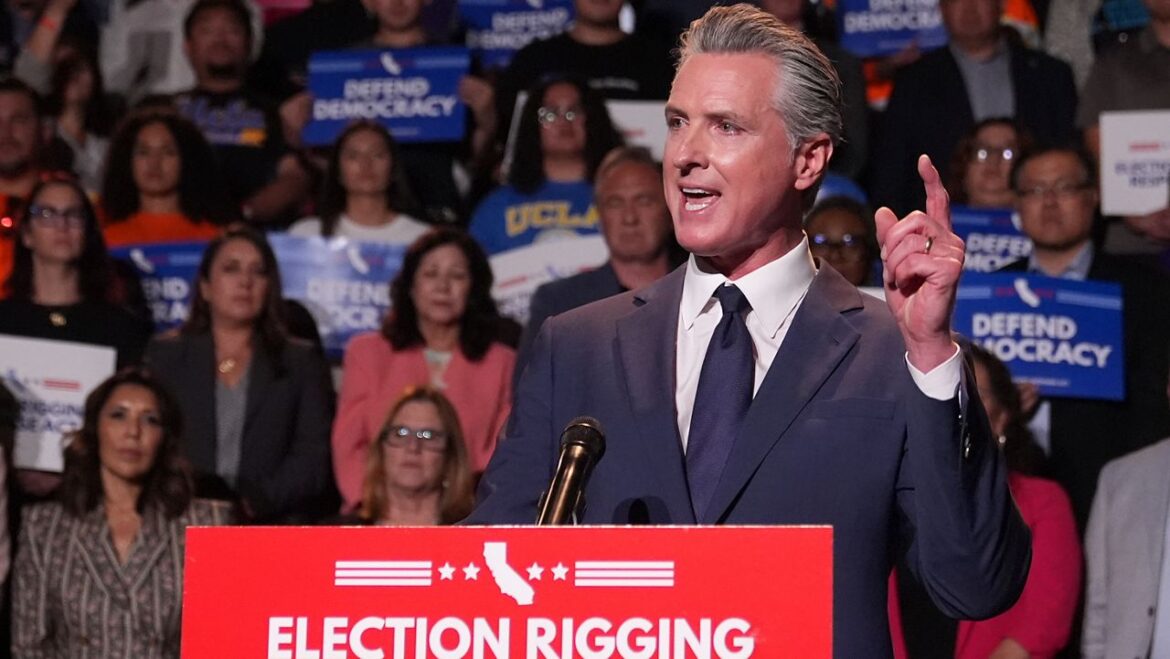LOS ANGELES — At the Democracy Center in Little Tokyo — a space dedicated to uplifting marginalized voices — director James Herr reflected on the site’s past as a 1942 assembly point where 37,000 Japanese Americans were ordered to report before being sent to incarceration camps.
“It’s important to be a place where people can have these conversations,” Herr said.
What You Need To Know
Gov. Gavin Newsom launched the Election Rigging Response Act in Little Tokyo to counter Texas Republicans’ mid-decade redistricting plan
The measure would temporarily give California lawmakers power to redraw congressional districts if other states act first
Critics, including Republican Rep. Kevin Kiley, call the approach misguided; polling shows most Californians prefer the independent redistricting commission
The Democracy Center’s historic site once served as an assembly point for Japanese Americans sent to incarceration camps in 1942
On Thursday, the conversation was about California fighting back. The center served as the backdrop for Gov. Gavin Newsom to launch his Election Rigging Response Act — a proposal to counter Texas Republicans’ mid-decade redistricting effort aimed at securing more GOP seats in the midterm elections.
Newsom’s plan would allow California lawmakers to redraw the state’s congressional map in a way that could offset gains made in Texas. However, voters would need to approve the measure in a special election before it could take effect.
“This does not move forward unless other states move forward,” Newsom said, emphasizing the proposal is a direct response to actions in Texas.
Not everyone agrees with the strategy. Republican Rep. Kevin Kiley, who has introduced legislation to ban mid-decade redistricting, criticized the move: “When you fight fire with fire, the whole world burns,” Kiley said in a videotaped response to Newsom’s announcement.
A Politico poll shows most voters favor keeping California’s independent redistricting commission — by a two-to-one margin. Just 36% said they support returning line-drawing powers to state lawmakers. Democratic leaders say the change would be temporary and that the independent commission would be restored after the midterms.
For Herr, the stakes go beyond party politics. He sees the plan as part of a larger fight to protect democracy nationwide.
“When you see voices in other parts of the country just being silenced, we have a responsibility to stand up,” Herr said. “Without this, we don’t have democracy.”


AloJapan.com